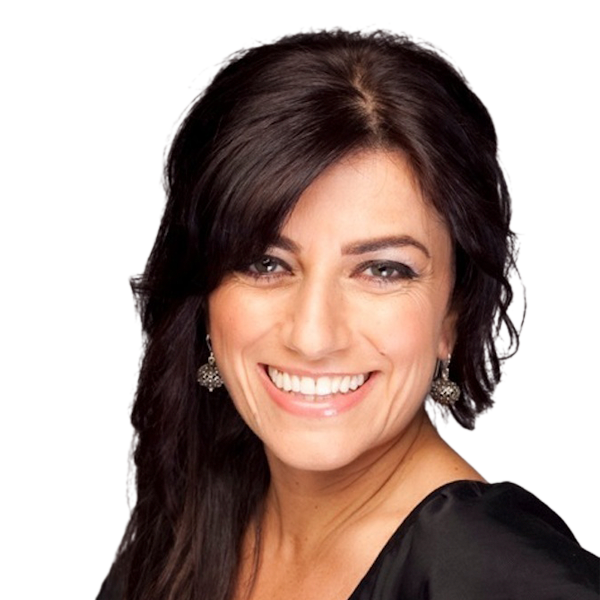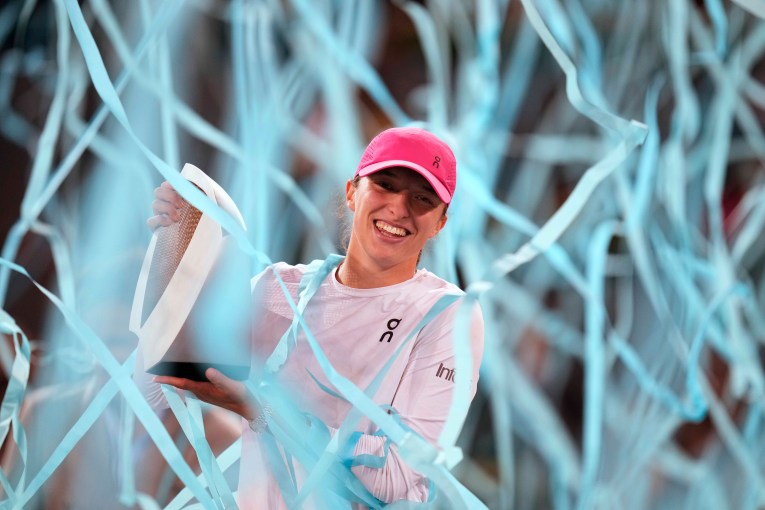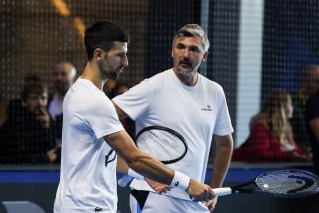Bouchard’s twirl is more casual sexism: Pippos


Wimbledon 2013 champion Marion Bartoli received ridiculously sexist commentary after her win. Photo: AAP
The twirl question has everyone in a spin.
After her straight-sets win over Kiki Bertens of the Netherlands, Canadian tennis star Eugenie Bouchard was asked by the on-court interviewer to “give us a twirl and tell us about your outfit?”
“A twirl?” replied the seventh seed, slightly bemused.
“A twirl, a pirouette, here we go,” Ian Cohen continued.
· The act of sportsmanship that ‘amazed’ Nadal
· Backlash after Bouchard asked to ‘twirl’
Bouchard obliged, then giggled nervously and buried her face in her hands.
“It was very unexpected. I don’t know, an old guy asking you to twirl. It was funny,” she said when asked about it later.
The Fed test
Was it sexist or just a bit of harmless fun?
In situations like this I like to employ the “Would you ask Roger Federer to do a twirl test?”

Among equals: Would Federer (far right) ever be asked about anything other than tennis after a win? Thanasi Kokkinakis, Nick Kyrgios, Eugenie Bouchard, Victoria Azarenka, Ana Ivanovic and Roger Federer at the Australian Open’s Kids Day. Photo: AAP
Clearly the answer is no.
I felt uncomfortable watching it but that was nothing compared to that sinking feeling of here we go again.
The men on the circuit are spared this treatment. They’re tennis players who, oddly, are asked questions about tennis.
Yes, there have been a few comments about the colour they’re wearing but rarely, if ever, do they have to answer questions about the cut of their shorts or the size of their sweatband. The fashion sideshow is a woman’s domain as it is with the rest of society.
If you believe the stereotype all of us women have an unquenchable thirst for fashion. We love it. Can’t get enough of it. Give me pleats, cut out backs, high-waisted skirts and neon. Lots of neon.
But forehands, backhands, drop shots and volleys? Don’t waste my time.
Skin deep talent
Unlike their male counterparts, women athletes are burdened with the added pressure of having to be beautiful. It’s not enough to be the best in the world at tennis or golf or surfing. They have to have that other commodity – the one that sells magazines and attracts TV rights and sponsorship – sex.
BBC commentator John Inverdale explained this better than me. Here’s what he told his listeners after Marion Bartoli’s Wimbledon win in 2013.
“Do you think Bartoli’s dad told her when she was little, you’re never going to be a looker, you’ll never be a Sharapova, so you have to be scrappy and fight?”

Wimbledon 2013 champion Marion Bartoli received ridiculously sexist commentary after her win. Photo: AAP
The twirl question and others like it don’t just pop up in isolation. They exist as part of the casual and not so casual sexism in sport – and society.
Sadly, the twirl is in “good” company.
After her win over Ana Ivanovic at last year’s Australian Open, Bouchard was asked this by former British tennis champion Samantha Smith:
“You’re getting a lot of fans here, a lot of them are male, and they want to know: If you could date anyone in the world of sport, of movies – I’m sorry, they asked me to say this – who would you date?”
At the same tournament Maria Sharapova had to respond to an inane comment about the heat wreaking havoc on her wardrobe. Men’s clothing must have some special quality that repels the heat.
Give it up already
We all have to change our thinking. We have to rid ourselves of prohibitive stereotypes that keep women in boxes – women’s sport is boring, women athletes aren’t strong enough, fast enough, entertaining enough, hot enough.
Enough.
Women athletes must be treated as just that – athletes.
World number seven, Bouchard broke into the top 10 for the first time last year after her success at Wimbledon where she lost to Petra Kvitova in the final.
She deserves to be treated with respect. All women athletes do.
Who knows? If we focus on their sporting achievements we may find it has a trickle down effect and bust a few stereotypes in the playground, perhaps.








